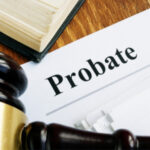Category Archives: Probate

Removing A Personal Representative From An Estate In Probate Court
Except under extraordinary circumstances, the probate court must follow the instructions in a deceased person’s will. The estate must pay taxes and settle with creditors before the beneficiaries can receive the assets designated for them in the will, but the testator (the author of the will) has the final say regarding who should act… Read More »

Beware Of Nuncupative Wills
Florida has long been a popular destination for retirees from other states and other countries to spend their final years, so it is unsurprising that Florida’s probate courts have admitted many wills that were issued elsewhere. Florida law adopts the attitude that, if a will meets the legal requirements of the state or country… Read More »

The Secrets You Keep From Your Family Can Come Out During Probate
There is already enough conflict and ugliness in the world; imagine how much there would be if your siblings, children, or spouse knew everything there was to know about you. In an age where everyone broadcasts everyone else’s business on the Internet, it is harder to take secrets with you to the grave. Meanwhile,… Read More »

You Have The Right To Leave Your Children Unequal Shares Of Your Estate
Personal finance advice columnists have strong opinions about whether you should divide your estate equally among your children. Some say that playing favorites in your will is a sure way to create rifts in your family that will make it very difficult for your grandchildren to enjoy the same kind of close relationship with… Read More »

What To Do If You Don’t Know Whether Your Recently Deceased Family Member Wrote A Will
The probate process, in which the court accounts for a recently deceased person’s assets, gives creditors a chance to seek payment of debts from the deceased person’s estate, files a tax return on behalf of the estate, and distributes the deceased person’s assets to the deceased person’s heirs, depends on whether the decedent wrote… Read More »

Is Reopening An Estate That Has Already Settled Worth The Trouble?
Even uncomplicated probate cases can be stressful when the person for whose estate you were acting as a personal representative settles and the beneficiaries get their inheritance. As long as the estate is open, everyone blames you when creditors surface and claim debts that, once paid, reduce the amount left for you and your… Read More »

Beware Of Known And Reasonably Ascertainable Creditors
The fun part of estate planning is daydreaming about enjoying retirement and about being generous to your descendants. In fact, you might even spend your first few sessions with an estate planning lawyer focusing on your dreams of your golden years and of creating generational wealth. Eventually, though, you will need to confront your… Read More »

Will The Clutter You Find In A Deceased Relative’s House Affect The Probate Of Their Estate?
Selling a deceased relative’s house is often one of the most stressful parts of probate. If the decedent included instructions in their will about selling the house, it makes the process somewhat easier, but selling a house is never easy, even under circumstances that do not involve bereavement. The worst is if the decedent… Read More »

Why Not Writing a Will Makes Probate More Difficult
If you have been working with a financial planner, or even if you have just been researching their websites as an early stage of your New Year’s resolution to start working with one, you have probably found a lot of information about how to keep certain assets from becoming part of your estate. Financial… Read More »

A Crash Course in Probate Law Terminology
In theory, there are a lot of legal processes that are so common that you should be able to complete them without hiring a lawyer. You probably know someone who has legally changed their name, gotten a divorce, or adopted a child, and they may or may not have had professional legal representation. In… Read More »
